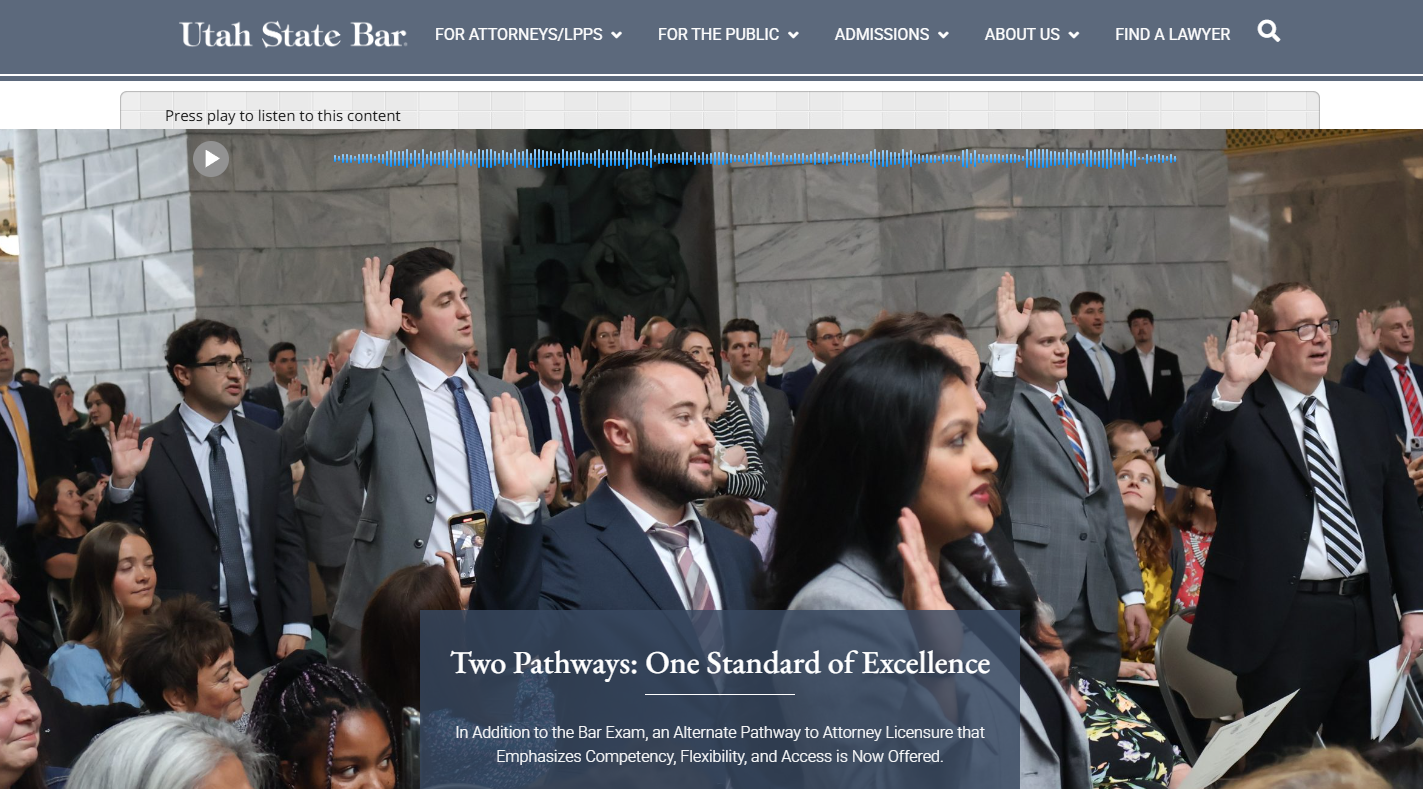Utah has joined the growing movement to rethink attorney licensure in the United States, as the Utah Supreme Court approved Rule 14-703A, establishing an alternate pathway to becoming a licensed attorney that emphasizes hands-on legal training over traditional standardized testing.
The new route, approved Sept. 24 and which will be open to applications starting Jan. 1, 2026, represents a significant shift in how the state evaluates readiness to practice law. Rather than requiring passage of the bar exam, candidates can demonstrate competency through a combination of supervised practical experience, specialized coursework, and a written performance assessment.
The skills-based model centers on three core components:
- Practical training: 240 hours of supervised legal practice under a qualified attorney, giving graduates direct exposure to real client work and legal procedures.
- Academic foundation: Completion of required skills coursework during law school, ensuring candidates have covered essential competencies in an educational setting.
- Performance assessment: A written exam administered by the Utah State Bar that evaluates practical application of legal knowledge.
According to the Utah State Bar, this combination actually exceeds many traditional bar prep timelines in terms of time investment, while offering what it describes as “deeper engagement with real legal work.”
Addresses Barriers to Admission
One of the pathway’s key selling points is its potential to reduce financial barriers to entering the profession. Associate Chief Justice John A. Pearce, who chaired the Bar Admissions Working Group that developed the alternative, said that the option is not about making it easier to become a lawyer.
“This option gives graduates a financially viable way to begin practicing law without months of unpaid studying and the potential of thousands of dollars in prep costs,” he said. “The Utah Supreme Court is convinced that this path will produce attorneys who are better prepared to immediately practice law.”
The approach reflects emerging research on legal competency assessment, the bar said in a statement. It cites empirical studies suggesting that skills-based evaluations may be more effective than standardized tests alone in predicting future success in legal practice.
Utah State Bar Executive Director Elizabeth Wright framed the change as recognition that “one size doesn’t fit all,” noting that the option serves “those who excel outside of a traditional exam” by equipping them with practical skills from the outset.
The alternate pathway will operate alongside, not replace, existing options. Utah will continue to offer the Uniform Bar Exam (UBE) and plans to adopt the NextGen Bar Exam when it launches in July 2028. This multi-pathway approach allows candidates to choose the route that best fits their learning style, financial circumstances, and career objectives.
National Context
Utah’s move positions the state within a broader national conversation about licensure reform. Multiple jurisdictions are evaluating similar changes, with some already implementing practice-based pathways.
According to my quick research this morning, four states already allow some form of skills-based bar admission, whether in pilot or permanent form: New Hampshire, Oregon, Washington and Wisconsin.
Another five states have pilots underway or in development: Arizona, California, Minnesota, Nevada and South Dakota.
In Utah, the public comment period on the proposed change in late 2024 drew 103 submissions, with many commenters praising the pathway’s focus on real-world legal service and its potential to enhance both public protection and access to justice.
The 15-member Bar Admissions Working Group that developed the pathway included judges, practitioners, and academics, reflecting a cross-section of Utah’s legal community.
Their work acknowledges what many in legal innovation have long argued: that the skills required for effective legal practice may not be fully captured by a high-stakes written examination.
 Robert Ambrogi Blog
Robert Ambrogi Blog